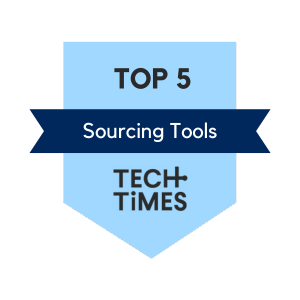Career ideal traits and competencies every candidate must have. What are the key ideal traits and competencies valued most by employers?
Finding the right fit talent can be hard. With so many applications per vacancy, how can you be sure to find the best candidate for your role? Should you consider traits and competencies in your selection/decision-making process?
When looking to find the very top talent, recruiters need to consider more than college degree, experience, and qualifications alone. Read article hidden talents unlocked.
Identifying traits and competencies is one of the most effective ways to predict the future performance of candidates. Competencies are inherent qualities an individual possesses – combining skills, knowledge and ability. Competencies can help to identify the ideal talent based on fair and transparent measures. They also help recruiters to assess and grade large talent pools.
Here are 12 ideal traits and competencies valued in businesses and our top tips on how you can develop these to become a top talent.
12 Ideal Traits and Competencies
1. Ability to Handle Pressure
The ability to handle pressure means that you can still work to a high level of performance even if there are challenging external factors. This could include demanding targets, working to deadlines, managing multiple tasks and reacting to change.
Companies value employees who can stay focused, get the job done and deliver in a fast-paced environment. Employees who struggle to handle pressure will not be high performers when it matters the most. careers that particularly require the ability to handle pressure include project managers, supply chain and logistics and healthcare workers.

2. Relationship Orientation & Extroversion
One way of measuring personality traits is to assess whether you are task-orientated or relationship-orientated. Relationship-orientated personality traits tend to focus on the needs of the people around them. They will put their effort into building communities and relationships, placing more importance on these than their to-do list. Another way to measure personality traits is to assess whether you are an introvert who prefers solitude or a smaller social group or an extrovert who enjoys socializing and being with others.
There is no right or wrong when it comes to personality traits. And all personality traits bring value to a company. However, it is a cultural norm that extraversion is associated more with leadership and career success. Roles that require extraversion traits include sales, events management and public relations.
3. Innovation & Openness to Experience
Innovation generally means introducing either a brand new concept or finding a solution to a problem. This could be a new way of working, developing a new product or moving into a new customer market.
Companies value innovation and employees who are open to change as this leads to the development of new products, improved efficiency and responding to customer needs. Ultimately leading to a competitive edge and greater business success. Innovation is important in most sectors, but roles that require particularly high levels of innovation include marketing, any kind of design role and engineering.
4. Risk Aversion
Risk aversion is a preference for a known outcome rather than taking a gamble. This does not mean that risk-averse people don’t take any gambles at all. It means that the risk will be carefully considered. Risk-averse people will apply the rules of ‘acceptable losses’ to any gamble. This means not betting more than they can expect in return, nor betting more than they can afford to lose. The assets you risk could refer to money, time, professional or personal reputation and opportunities. Entrepreneurs often considered the opposite of risk-averse, work very hard to limit risks to these assets.
It’s often thought that being risk-averse is bad for business as it stifles innovation and creativity. But this doesn’t have to be the case. Being risk-averse can help you to make good decisions and reduce potentially costly mistakes within your company. careers that benefit from risk aversion traits include regulator or audit roles, finance and data scientists for example.
5. Attention to Detail
Possessing good attention to detail means that you are thorough, accurate and minimize mistakes. This results in increased quality of your work and improved productivity. Attention to detail can be demonstrated across most areas of work, including written materials (emails, reports, records), working with numbers (accounts, handling money), completing a process (administration, design, building work or production).
Why do employers value attention to detail?
Employers value attention to detail traits and competencies as it improves efficiency, reduces mistakes, minimizes loss and improves their reputation. Attention to detail trait is particularly important in fields such as accountancy, pharmacology, programming and proofreading/editing.

6. Teamwork
Teamwork is the ability to interact and cooperate with a group of people to achieve the desired goal. Communication skills and a positive mindset contribute to your teamwork abilities.
Nearly all career roles will require you to work with others. Being able to work effectively as a team to deliver goals is essential to the success of any business. careers where teamwork is especially important include Human resources, law enforcement, IT, operations and marketing.
A great deal of research has been conducted into effective teamwork, such as Belbin’s nine team roles. The research shows that individuals take on a preferred role in a team, and it is the mix and cohesion of these different roles that result in success. You can take a free test online to find out what team role suits you best and use this information to develop your knowledge and skills in this area. You can then put this knowledge into practice in your current role through involvement in projects or your everyday personal life.

7. Judgement and Decision Making
Decision-making is the ability to identify a problem and assess the options available based on the data available, your knowledge and previous experience. Following assessment, you then arrive at an appropriate and timely solution. Decisions then need to be reviewed to consider their effectiveness, any changes needed and learning from the experience.
Companies value good decision-making – traits and competencies – as efficient and successful judgment saves time and resources. Good decision-making reduces risks that could affect profitability, efficiency and company reputation. This is particularly important during times of high pressure. Careers that particularly require decision-making skills include health and social care professions, lawyers, business managers, and air traffic controllers.
Through free online courses or independent research, you can learn the 7 steps of the decision-making progress (Recognize, Research, Generate Evaluate, Select, Implement, Observe). You can then re-evaluate recent decisions you have made to see how you used the process and where you can improve.
8. Effective Communication
Effective communication means the ability to give and receive communication with the intended audience. It also means, listening and questioning to ensure two-way communication. Non-verbal communication such as body language, tone of voice and eye contact are also important skills. Written communication is also key in the digital age where the majority of communication takes place via emails or other messaging technology.
Effective communication – traits and competencies – underpins all aspects of a business. Working with others is essential for a business to operate successfully. Good communication reduces conflict and enhances effective working between individuals and within teams. Communication is also essential for an excellent customer experience and building trust with external partners. Effective communication is especially important in roles such as customer care, public relations, human resources and marketing.
9. Adaptability
What does adaptability mean in business?
Adaptability means the ability to change. Adapting to changes in the work environment could include updated processes, changes to organizational structure, innovative IT systems, different customers or new colleagues.
Most organizations are in a state of continual change and improvement. Being adaptable means you will easily and successfully accept change. Therefore reducing the time required to change and maintaining high levels of performance. Adaptability also means that you will keep up with the pace of change, so your skills will always be relevant and you will be a valuable and productive employee. Careers that require high levels of adaptability traits are teachers, IT systems managers, business managers and healthcare professionals.
10. Strategic Thinking
Strategic thinking is the ability to analyze problems and opportunities from a broad perspective, i.e. seeing the ‘bigger picture. Strategic thinkers can identify the potential impact of their decisions and plan how to get to their goals. Strategic thinking is often associated with senior leaders, but the ability to understand the wider business impact of your actions is a valuable skill for employees at all levels.
In business, new trends grow rapidly, and failure to take advantage of opportunities means companies fall behind. Employees who think strategically will become more skilled at forecasting and capitalizing on new trends for business success. On an individual level, strategic thinking enables employees to be more productive, responsive and valuable to an organization.
Strategic thinking traits are particularly important in fields such as research and development, data analysis, marketing, management and financial advice and planning.
Strategic thinking is a key topic in leadership career path and there are many resources available including books, online resources and workshops.
11. Goal Orientation
Being goal-orientated means you are focused on completing tasks to reach specified outcomes. Someone who is goal-driven will set targets for their work, have a plan of what they want to achieve and stay motivated to reach their objectives.
Companies value this because being focused on goals delivers results. Focusing on goals means employees plan their time efficiently and don’t waste time on tasks that will not achieve their desired outcomes. Meaning companies get more productive and cost-efficient employees who add to their bottom line.
Careers that require high levels of goal-orientation include sales, IT support and business management.
12. Leadership
Leadership does not always mean autocratic management and being the ‘boss’- although this is something you could aspire to further in your career. Leadership means the ability to guide, motivate or inspire others to reach a goal or complete a task. It also means enabling teamwork, listening to feedback and being aware of individual needs to maintain a cohesive and productive team. You can demonstrate leadership qualities, even if you’re not a line manager, within your team.
Leadership traits are important to an organization as they help to keep work on track and deliver goals. Employees with leadership traits may also be the senior managers of the future, ensuring the further success of the organization. Leadership traits are particularly required in roles such as project manager, operations manager, human resources, business manager, and customer services manager.

The ideal traits of a talented individual are often skills that can be learned and developed. However, some people are born with a natural aptitude for certain abilities. Whether you are naturally gifted or not, developing your traits is essential for career success.
Talentprise uses data-driven candidate matching based on an assessment of 12 values and motivations, and 12 traits and competencies. A unique ranking system based on 5 pillars: Education, Experience, Expertise, Skills, and Competencies. Making sure the right career-fit candidates can be found quickly. Good for recruiters and candidates alike.
Sign up for a Talentprise account today to get immediate access to tremendous career opportunities.

Editorial Team
Our team is fueled by a passion for crafting valuable content that enriches the experiences of our users, customers, and visitors. We meticulously select meaningful and unbiased topics ranging from tips and guides to challenges and the latest in technology, trends, and job market insights. All curated with care and affection!








